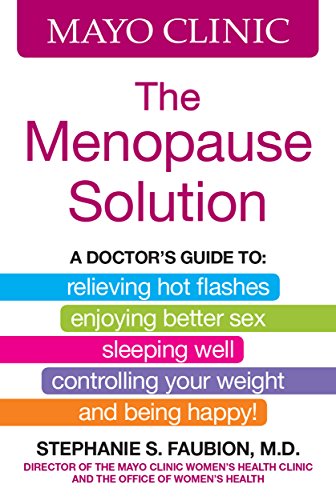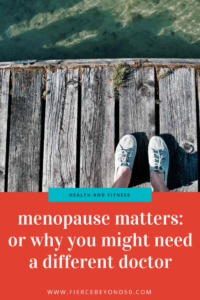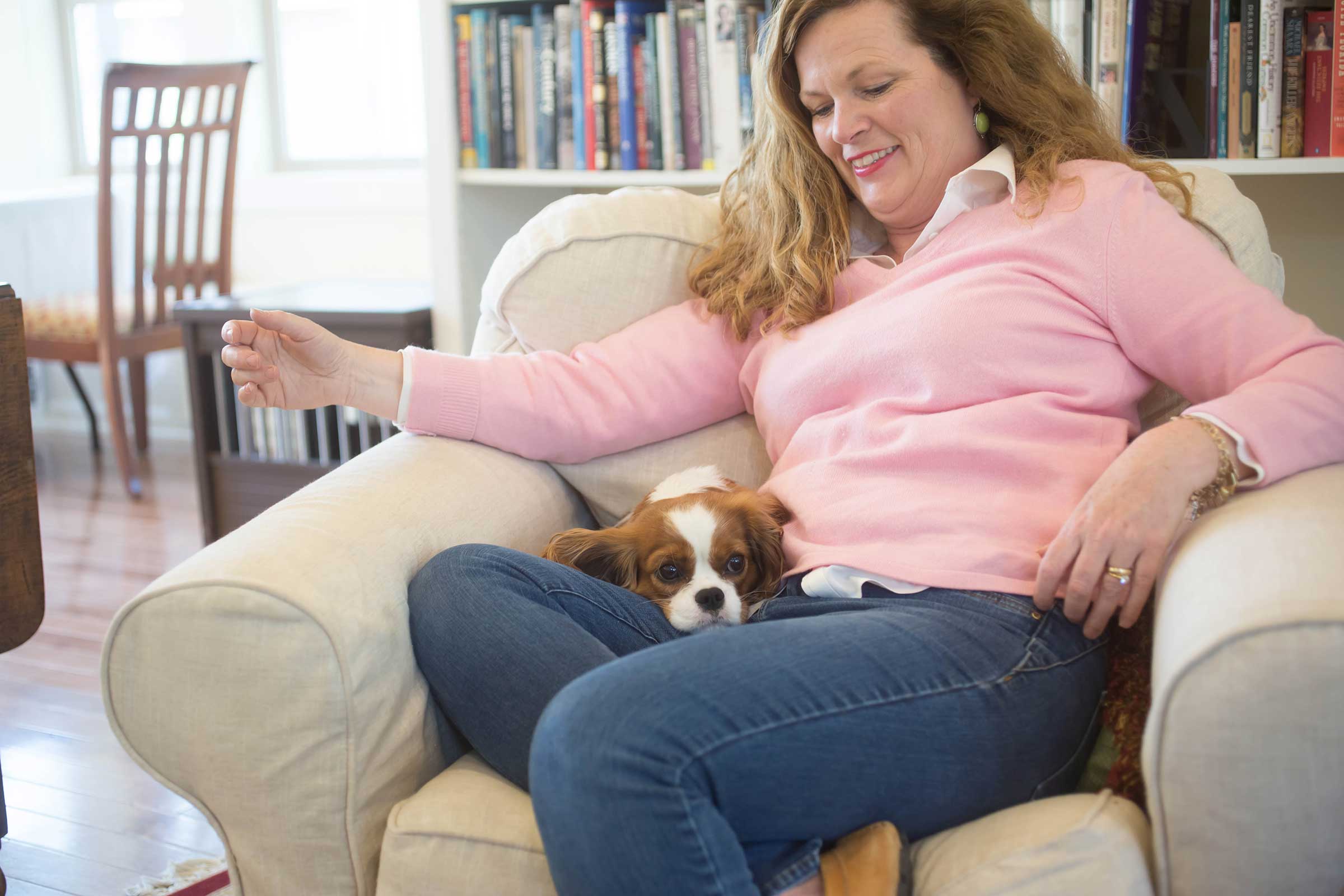This post may contain affiliate links. Full disclosure policy
THIS POST MAY CONTAIN REFERRAL LINKS. IF YOU CLICK THROUGH AND TAKE ACTION, I MAY BE COMPENSATED, AT NO ADDITIONAL COST TO YOU.
From the time a girl turns thirteen, and in many cases long before, she is supplied with mountains of information regarding her reproductive health.
In school, she is told about menses, sexuality, and child-bearing, both how to achieve it and how to avoid it. During doctor visits, she is quizzed in greater detail about her personal experiences with all of these subjects. If she has questions or problems, she is supplied with pamphlets and practical advice to address them.
However, when it comes to dealing with life in her post-reproductive years, women often have to go it alone.
Maybe it was different for you, but that was certainly my experience. To say my education about menopause was elementary is putting it mildly.
The signs of its imminent arrival were in evidence for at least five years before I plunged into full-blown menopause. But because my periods were still regular (also because nobody brought it up during my annual visits to the gynecologist, not even once) I didn’t make the connection between my night sweats and impending menopause.
It’s funny in retrospect, but I would actually wake up, cranky and hot as a poker, grumbling about cheap hotels that turned off the air conditioning in the middle of the night.
About five years ago, when menopause slammed onto the shore of my life with the force of a category 5 hurricane, I wasn’t just undereducated, I was utterly unprepared.
FIERY, FIERCE, AND SO MANY FEELINGS
I was on a book tour when I finally connected the dots. Having thirty or so hot flashes a day will do that. To say that I was miserable would be putting it mildly.
I was giving off enough heat to power a small village in the Ukraine and absolutely exhausted from lack of sleep.
I also felt like punching every single person I met right in the face.
Not exactly the vibe you want to give when you’re on the road, giving speeches and getting your picture taken with lovely readers. (To those of you who got your photo snapped with a grimacing author that year, my apologies. It was beyond my control.)
I was fierce, all right. Not in a good way.
So what, if anything, could I do about it?
MENOPAUSE: IT’S NOT FOR SISSIES
Googling the topic left me more confused than enlightened. There was so much conflicting information. Next stop: Amazon.
There were quite a number of books available. But a lot of them seemed a little suspect. I don’t know about you, but I’m not a big fan of celebrity doctors. Especially the kind who spend a lot of time trying to sell you supplements, potions, or pricey personal coaching.
What I wanted was a book written by a faceless but skilled physician with extensive experience, the most up-to-date information, who was part of a clinic with an outstanding national reputation.
Mayo Clinic: The Menopause Solution was just what the cranky, sleepless, overheated patient ordered.
The book I read back then was an earlier edition but it was still a godsend! It helped me understand what was happening to my body and why, and told me what I could do help alleviate the impact.
Obviously, menopause is too big a subject to tackle in a single blog post. I do hope to delve more deeply into specifics in the future. Today I’ll just say that if you’re a woman over 50, I highly recommend this book.
However, there is one very important takeaway from this book that I do want to share today.
With some notable exceptions, the doctor who helped deliver your babies is probably not the doctor who can or should help you through menopause.
Bottom line: menopause isn’t for sissies.
Some people sail right through. But for a lot of people, and I’m one of them, menopause can turn your world upside down. If you’re like me, you need all the help you can get, preferably exert help.
Where can you find it?
THE NORTH AMERICAN MENOPAUSE SOCIETY
At the website for the North American Menopause Society (NAMS), you can search for a NAMS Certified Menopause Practitioner in your area.
So what does that mean and why should you care? Here’s what the NAMS website has to say about it…
“A number of years ago, NAMS recognized a need to set essential standards for health providers, thereby assuring high-quality care for women at menopause and beyond. To meet this need, we developed a competency examination. All licensed healthcare providers are eligible to sit for this examination. Those who pass have demonstrated their expertise in the field and are awarded the credential of NCMP or NAMS Certified Menopause Practitioner. They receive a printed certificate and a lapel pin designating their achievement.
“The NAMS Menopause Practitioner credential is valid for three years. The credential can be maintained by either passing a new examination or submitting appropriate continuing medical education credits that demonstrate ongoing education in the field”.
If you’re struggling through menopause, a NAMS practitioner can really help. A NAMS practitioner is so interested in treating menopausal women that they choose to undergo focused, ongoing, up-to-date education and specialization on the subject. I’ve been fortunate to have two NAMS practitioners, one in Connecticut and now in Oregon. Both made a huge difference in my life.
FOREAMED AND BARE ARMED
In comparison to what’s available regarding female reproductive health, finding information on our post-reproductive health can feel like looking for a needle in a haystack.
But, fortunately, one of the advantages of living for fifty years and beyond is that we’re used to taking matters into our own hands. That’s what makes us fierce, right?
If you’re feeling blindsided by menopause, arm yourself with good information, the right doctor for this stage of your life, and sleeveless tops.
Lots and lots of sleeveless tops.




